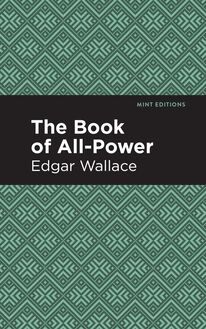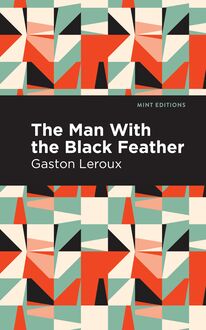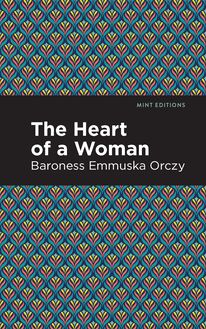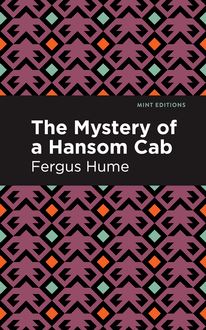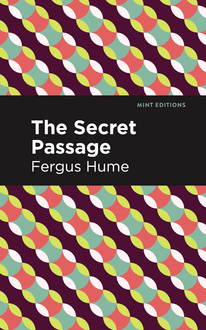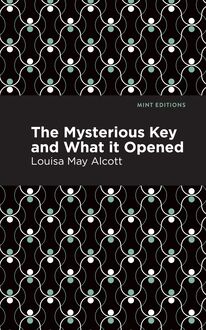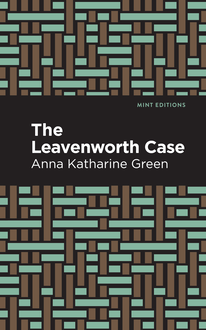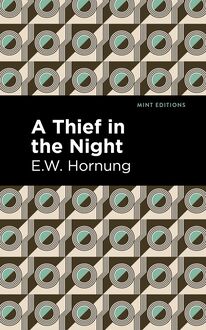-
 Univers
Univers
-
 Ebooks
Ebooks
-
 Livres audio
Livres audio
-
 Presse
Presse
-
 Podcasts
Podcasts
-
 BD
BD
-
 Documents
Documents
-
- Cours
- Révisions
- Ressources pédagogiques
- Sciences de l’éducation
- Manuels scolaires
- Langues
- Travaux de classe
- Annales de BEP
- Etudes supérieures
- Maternelle et primaire
- Fiches de lecture
- Orientation scolaire
- Méthodologie
- Corrigés de devoir
- Annales d’examens et concours
- Annales du bac
- Annales du brevet
- Rapports de stage
La lecture à portée de main
Vous pourrez modifier la taille du texte de cet ouvrage
Découvre YouScribe en t'inscrivant gratuitement
Je m'inscrisDécouvre YouScribe en t'inscrivant gratuitement
Je m'inscrisEn savoir plus
Vous pourrez modifier la taille du texte de cet ouvrage
En savoir plus

Description
When Malcolm Hay, a young British engineer, is sent to work for a Ukrainian-English oil company right before the first World War, he becomes a unique spectator of the political tensions of the time. After he befriends Kensky, a wealthy, elderly, Jewish-Russian man, and Grand-Duchess Irene Yaroslav, his life is changed by the gift Kensky has entrusted him with The Book of All-Power.
The book, which is said to be able to make any man do the holder’s bidding and holds the secret to total power, is sought after by many, but few would suspect the engineer to have it in his possession. Years later Malcolm finds himself back in Russia, where he reconnects with old acquaintances, each finding themselves trapped in the country and enemies to the state. After her old butler gains prominence in the Russian Revolution, Irene is kept as his servant. Meanwhile, Malcolm is kept as a prisoner, accused of being an enemy to the revolution. With the help of a mutual friend and American gangster, Cherry Bim, and brandishing the all-powerful book, can Malcolm and Irene escape their imprisonment, and flee from Russia before it’s too late?
This high-stakes thriller joins the impressive and respected catalog of Edgar Wallace, taking readers on an adventure. With the compelling characters, powerful artifact, and exciting setting, The Book of All Power is sure to keep readers engaged until the very last word. Wallace is considered to be one of the greats of 19th science fiction and crime thriller genre, and defends his title by embellishing The Book of All Power with twists and unique perspectives on the fall of the Russian autocracy.
Partnered with a new eye-catching design, The Book of All Power captures its audience and treats them to a modern and accessible manuscript that brings the legendary author, Edgar Wallace, into the 21st century.
Sujets
Informations
| Publié par | Mint Editions |
| Date de parution | 17 novembre 2020 |
| Nombre de lectures | 0 |
| EAN13 | 9781513266855 |
| Langue | English |
| Poids de l'ouvrage | 2 Mo |
Informations légales : prix de location à la page 0,0400€. Cette information est donnée uniquement à titre indicatif conformément à la législation en vigueur.
Extrait
The Book of All-Power
Edgar Wallace
The Book of All-Power was first published in 1921.
This edition published by Mint Editions 2020.
ISBN 9781513266411 | E-ISBN 9781513266855
Published by Mint Editions®
minteditionbooks.com
Publishing Director: Jennifer Newens
Project Manager: Gabrielle Maudiere
Design & Production: Rachel Lopez Metzger
Typesetting: Westchester Publishing Services
C ONTENTS
1. I NTRODUCING M ALCOLM H AY
2. A G UN- M AN R EFUSES W ORK
3. T HE G RAND D UCHESS I RENE
4. T HE P RINCE WHO P LANNED
5. T HE R AID ON THE S ILVER L ION
6. P RINCE S ERGANOFF P AYS THE P RICE
7. K ENSKY OF K IEFF
8. T HE G RAND D UKE IS A FFABLE
9. T HE H AND AT THE W INDOW
10. T ERROR IN M AKING
11. T HE C OMMISSARY WITH THE C ROOKED N OSE
12. I N THE P RISON OF S T. B ASIL
13. C HERRY B IM M AKES A S TATEMENT
14. I N THE H OLY V ILLAGE
15. T HE R ED B RIDE
16. T HE B OOK OF A LL- P OWER
17. O N THE R OAD
18. T HE M ONASTERY OF S T. B ASIL THE L EPER
19. T HE E ND OF B OOLBA
C HAPTER THE L AST
Chapter 1
I NTRODUCING M ALCOLM H AY
I f a man is not eager for adventure at the age of twenty-two, the enticement of romantic possibilities will never come to him.
The chairman of the Ukraine Oil Company looked with a little amusement at the young man who sat on the edge of a chair by the chairman’s desk, and noted how the eye of the youth had kindled at every fresh discouragement which the chairman had put forward. Enthusiasm, reflected the elder man, was one of the qualities which were most desirable in the man who was to accept the position which Malcolm Hay was at that moment considering.
“Russia is a strange country,” said Mr. Tremayne. “It is one of the mystery places of the world. You hear fellows coming back from China who tell you amazing stories of the idiosyncrasies of the Chink. But I can tell you, from my own personal observations, that the Chinaman is an open book in words of one syllable compared with the average Russian peasant. By the way, you speak Russian, I understand?”
Hay nodded.
“Oh, yes, sir,” he said, “I have been talking Russian ever since I was sixteen, and I speak both the dialects.”
“Good!” nodded Mr. Tremayne. “Now, all that remains for you to do is to think both dialects. I was in Southern Russia attending to our wells for twenty years. In fact, long before our wells came into being, and I can honestly say that, though I am not by any means an unintelligent man, I know just as little about the Russian to-day as I did when I went there. He’s the most elusive creature. You think you know him two days after you have met him. Two days later you find that you have changed all your opinions about him; and by the end of the first year, if you have kept a careful note of your observations and impressions in a diary, you will discover that you have three hundred and sixty-five different views—unless it happens to be a leap year.”
“What happens in a leap year?” asked the innocent Hay.
“You have three hundred and sixty-six views,” said the solemn Mr. Tremayne.
He struck a bell.
“We shan’t want you to leave London for a week or two,” he said, “and in the meantime you had better study up our own special literature. We can give you particulars about the country—that part of the country in which the wells are situated—which you will not find in the guidebooks. There are also a few notable personages whom it will be advisable for you to study.”
“I know most of them,” said the youth with easy confidence. “As a matter of fact, I got the British Consul to send me a local directory and swotted it.”
Mr. Tremayne concealed a smile.
“And what did the local directory say about Israel Kensky?” he asked innocently.
“Israel Kensky?” said the puzzled youth. “I don’t remember that name.”
“It is the only name worth remembering,” said the other dryly, “and, by the way, you’ll be able to study him in a strange environment, for he is in London at this moment.”
A clerk had answered the bell and stood waiting in the doorway.
“Get Mr. Hay those books and pamphlets I spoke to you about,” said Tremayne. “And, by the way, when did M. Kensky arrive?”
“To-day,” said the clerk.
Tremayne nodded.
“In fact,” he said, “London this week will be filled with people whose names are not in your precious directory, and all of whom you should know. The Yaroslavs are paying a sort of state visit.”
“The Yaroslavs?” repeated Hay. “Oh, of course _____ ”
“The Grand Duke and his daughter,” added Mr. Tremayne.
“Well,” smiled the young man, “I’m not likely to meet the Grand Duke or the Grand Duchess. I understand the royal family of Russia is a little exclusive.”
“Everything is likely in Russia,” said the optimistic Mr. Tremayne. “If you come back in a few years’ time and tell me that you’ve been appointed an admiral in the Russian Navy, or that you’ve married the Grand Duchess Irene Yaroslav, I shall not for one moment disbelieve you. At the same time, if you come back from Russia without your ears, the same having been cut off by your peasant neighbours to propitiate the ghost of a martyr who died six hundred years ago, I shall not be surprised either. That is the country you’re going to—and I envy you.”
“I’m a little surprised at myself,” admitted Malcolm, “it seems almost incredible. Of course, sir, I have a lot to learn and I’m not placing too much reliance upon my degree.”
“Your science degree?” said Tremayne. “It may be useful, but a divinity degree would have been better.”
“A divinity degree?”
Tremayne nodded.
“It is religion you want in Russia, and especially local religion. You’ll have to do a mighty lot of adapting when you’re out there, Hay, and I don’t think you could do better than get acquainted with the local saints. You’ll find that the birth or death of four or five of them are celebrated every week, and that your workmen will take a day’s holiday for each commemoration. If you’re not pretty smart, they’ll whip in a few saints who have no existence, and you’ll get no work done at all—that will do.”
He ended the interview with a jerk of his head, and as the young man got to his feet to go, added: “Come back again to-morrow. I think you ought to see Kensky.”
“Who is he?” asked Hay courteously. “A local magnate?”
“In a sense he is and in a sense he’s not,” said the careful Mr. Tremayne. “He’s a big man locally, and from a business point of view, I suppose he is a magnate. However, you’ll be able to judge for yourself.”
Malcolm Hay went out into the teeming streets of London, walking on air. It was his first appointment—he was earning money, and it seemed rather like a high-class dream.
In Maida Vale there are many little side streets, composed of shabby houses covered with discoloured stucco, made all the more desolate and gloomy in appearance by the long and narrow strip of “garden” which runs out to the street. In one of these, devoted to the business of a boarding-house, an old man sat at a portable bench, under the one electric light which the economical landlady had allowed him. The room was furnished in a typically boarding-house style.
But both the worker at the bench, and the woman who sat by the table, her chin on her palms, watching him, seemed unaffected by the poverty of their surroundings. The man was thin and bent of back. As he crouched over the bench, working with the fine tools on what was evidently intended to be the leather cover of a book, his face lay in the shadow, and only the end of his straggling white beard betrayed his age.
Presently he looked up at the woman and revealed himself as a hawk-nosed man of sixty. His face was emaciated and seamed, and his dark eyes shone brightly. His companion was a woman of twenty-four, obviously of the Jewish type, as was the old man; what good looks she possessed were marred by the sneer on her lips.
“If these English people see you at work,” she said presently, “they will think you are some poor man, little father.”
Israel Kensky did not stop his work.
“What book are you binding?” she asked after awhile. “Is it the Talmud which Levi Leviski gave you?”
The old man did not answer, and a dark frown gathered on the woman’s heavy face. You might not guess that they were father and daughter, yet such was the case. But between Sophia Kensky and her father there was neither communion of spirit nor friendship. It was amazing that she should accompany him, as she did, wherever he went, or that he should be content to have her as his companion. The gossips of Kieff had it that neither would trust the other out of sight; and it may be that there was something in this, though a stronger motive might be suspected in so far as Sophia’s actions were concerned.
Presently the old man put down his tools, blinked, and pushed back his chair.
“It is a design for a great book,” he said, and chuckled hoarsely. “A book with steel covers and wonderful pages.” He smiled contemptuously. “The Book of All-Power,” he said.
“Little father, there are times when I think you are mad. For how can you know the secrets which are denied to others? And you who write so badly, how can you fill a great book with your writings?”
“The Book of All-Power,” repeated the man, and the smile on the woman’s face grew broader.
“A wonderful book!” she scoffed, “filled with magic and mystery and spells—do you wonder that we of Kieff suspect you?”
“We of Kieff?” he repeated mockingly, and she nodded.
“We of Kieff,” she said.
“So you are with the rabble, Sophia!” He lifted one shoulder in a contemptuous little gesture.
“You are also of the rabble, Israel Kensky,” she said. “Do you take your dinner in the Grand Duke’s palace?”
He was gathering together the tools on the table, and methodically fitting each graver into a big leather purse.
“The Grand Duke does not stone me in the street, nor set fire to my houses,” he said.
“Nor the Grand Duchess,” said the girl meaningly,
-
 Univers
Univers
-
 Ebooks
Ebooks
-
 Livres audio
Livres audio
-
 Presse
Presse
-
 Podcasts
Podcasts
-
 BD
BD
-
 Documents
Documents
-
Jeunesse
-
Littérature
-
Ressources professionnelles
-
Santé et bien-être
-
Savoirs
-
Education
-
Loisirs et hobbies
-
Art, musique et cinéma
-
Actualité et débat de société
-
Jeunesse
-
Littérature
-
Ressources professionnelles
-
Santé et bien-être
-
Savoirs
-
Education
-
Loisirs et hobbies
-
Art, musique et cinéma
-
Actualité et débat de société
-
Actualités
-
Lifestyle
-
Presse jeunesse
-
Presse professionnelle
-
Pratique
-
Presse sportive
-
Presse internationale
-
Culture & Médias
-
Action et Aventures
-
Science-fiction et Fantasy
-
Société
-
Jeunesse
-
Littérature
-
Ressources professionnelles
-
Santé et bien-être
-
Savoirs
-
Education
-
Loisirs et hobbies
-
Art, musique et cinéma
-
Actualité et débat de société
- Cours
- Révisions
- Ressources pédagogiques
- Sciences de l’éducation
- Manuels scolaires
- Langues
- Travaux de classe
- Annales de BEP
- Etudes supérieures
- Maternelle et primaire
- Fiches de lecture
- Orientation scolaire
- Méthodologie
- Corrigés de devoir
- Annales d’examens et concours
- Annales du bac
- Annales du brevet
- Rapports de stage




